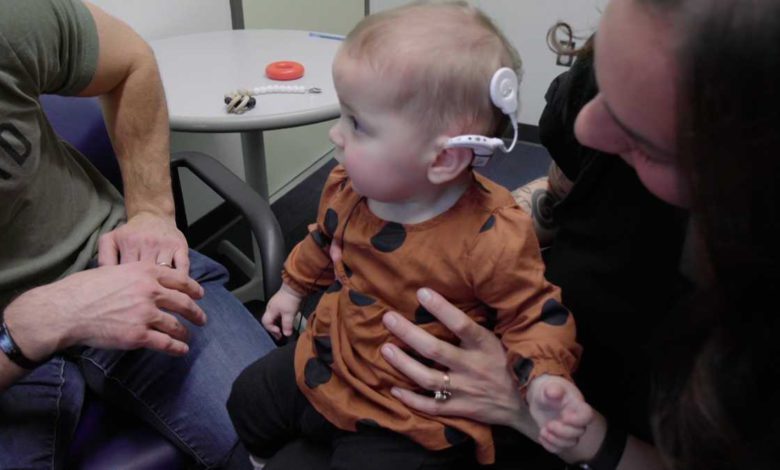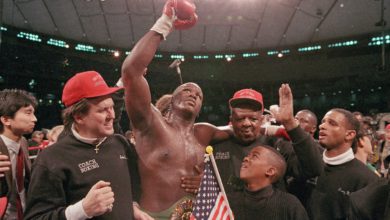

A magical moment for a family happened at a Boston specialty hospital, as an infant girl was able to hear her parents for the first time.Brian and Emily Pray said that they noticed their daughter Luna, now 7 months old, was not responding to loud noises two days after her birth."Call it mother's intuition or whatever it may be, but I just had a feeling that she was deaf," Emily Pray said.Luna was diagnosed with profound hearing loss in both ears, as doctors determined that she was only able to detect vibrations. "We were mentally preparing that news and I think, ultimately, we just knew we were gonna give her everything we need to to give her the most successful path in life," Brian Pray said.The Prays decided to seek out help from the Mass Eye and Ear in Boston, and they then decided to get cochlear implants for Luna.Dr. Mandy Thiesen, an audiology manager at Mass Eye and Ear, said Luna was their youngest patient to ever receive cochlear implants. Luna was 6 months old at the time. "I was really pleased when they were able to be approved so quickly, because we all were aware that the sooner we're able to give Luna access to sound, the more kind of normal, typically, her speech and language skills will start to develop," Thiesen said.Luna had the implant inserted on each side of her head to take the place of her cochlea, which is the sensory organ for sound in the human hearing system.Then, came the big test when they activated the devices for the first time. "It was obviously sad to see her cry, but it was really exciting because those tears meant that she had heard something," Emily Pray said.Now that Luna has had her cochlear implants for a month, her tears have given way to curiosity. "You come close and she'll turn her head, whereas that never happened before," Emily Pray said. "Our hope is that she's just as successful as possible. We do joke around that she'll be the first deaf astronaut, so she can do whatever she wants."The Prays say that Luna is thriving with her new implants, which are just the first step. Thiesen said follow-up treatment is key, such as early intervention providers and speech therapy.
A magical moment for a family happened at a Boston specialty hospital, as an infant girl was able to hear her parents for the first time.
Brian and Emily Pray said that they noticed their daughter Luna, now 7 months old, was not responding to loud noises two days after her birth.
"Call it mother's intuition or whatever it may be, but I just had a feeling that she was deaf," Emily Pray said.
Luna was diagnosed with profound hearing loss in both ears, as doctors determined that she was only able to detect vibrations.
"We were mentally preparing that news and I think, ultimately, we just knew we were gonna give her everything we need to to give her the most successful path in life," Brian Pray said.
The Prays decided to seek out help from the Mass Eye and Ear in Boston, and they then decided to get cochlear implants for Luna.
Dr. Mandy Thiesen, an audiology manager at Mass Eye and Ear, said Luna was their youngest patient to ever receive cochlear implants. Luna was 6 months old at the time.
"I was really pleased when they were able to be approved so quickly, because we all were aware that the sooner we're able to give Luna access to sound, the more kind of normal, typically, her speech and language skills will start to develop," Thiesen said.
Luna had the implant inserted on each side of her head to take the place of her cochlea, which is the sensory organ for sound in the human hearing system.
Then, came the big test when they activated the devices for the first time.
"It was obviously sad to see her cry, but it was really exciting because those tears meant that she had heard something," Emily Pray said.
Now that Luna has had her cochlear implants for a month, her tears have given way to curiosity.
"You come close and she'll turn her head, whereas that never happened before," Emily Pray said. "Our hope is that she's just as successful as possible. We do joke around that she'll be the first deaf astronaut, so she can do whatever she wants."
The Prays say that Luna is thriving with her new implants, which are just the first step. Thiesen said follow-up treatment is key, such as early intervention providers and speech therapy.
Source link









